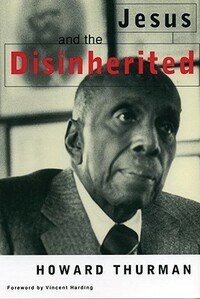Take a photo of a barcode or cover
challenging
hopeful
informative
fast-paced
A wonderful short book that is a practical guide to spirituality for those on the margins and those working beside them. Challenging in its rejection of both past and modern tendencies of the disinherited Thurman with much compassion examines these issues and provides an alternative found in the life and teachings of Jesus.
informative
reflective
medium-paced
reflective
slow-paced
slow-paced
challenging
hopeful
informative
reflective
slow-paced
challenging
hopeful
inspiring
reflective
fast-paced
I think every Christian should read this book.
It's a short collection of essays that examines what it means to be both a follow of Jesus and 'disinherited'--systematically and culturally oppressed, sometimes by the very same people who also call themselves Christian. As a Filipino Catholic, this was very, very relevant to me.
The teachings of this book are hard and I'm not completely sure I agree with all of them (the deception essay, for example, made me uncomfortable). But it is supposed to be, I think. The best teachings are. And the writer is not some cosseted preacher making abstract claims--Thurman wrote this while American racist segregation was ongoing. He knows how hard these principles are to live out. Throughout the book you feel like he's on your side, as well as on the side of anyone who's ever had their backs pressed up against the cruel wall of violence and scorn.
And that, by the way, is exactly who this book is for. The original target audience were black Americans around the 1940s, but what he writes can apply to any person of faith whose people were opporessed or who are part of any minority. (And obviously, people outside this group will have something to learn from this too.)
I'm going to think about this book's contents for a long time. It definitely warrants a reread to completely absorb the powerful, if difficult, ideas. Highly recommended.
It's a short collection of essays that examines what it means to be both a follow of Jesus and 'disinherited'--systematically and culturally oppressed, sometimes by the very same people who also call themselves Christian. As a Filipino Catholic, this was very, very relevant to me.
The teachings of this book are hard and I'm not completely sure I agree with all of them (the deception essay, for example, made me uncomfortable). But it is supposed to be, I think. The best teachings are. And the writer is not some cosseted preacher making abstract claims--Thurman wrote this while American racist segregation was ongoing. He knows how hard these principles are to live out. Throughout the book you feel like he's on your side, as well as on the side of anyone who's ever had their backs pressed up against the cruel wall of violence and scorn.
And that, by the way, is exactly who this book is for. The original target audience were black Americans around the 1940s, but what he writes can apply to any person of faith whose people were opporessed or who are part of any minority. (And obviously, people outside this group will have something to learn from this too.)
I'm going to think about this book's contents for a long time. It definitely warrants a reread to completely absorb the powerful, if difficult, ideas. Highly recommended.
Graphic: Racism
challenging
informative
reflective
slow-paced
informative
inspiring
hopeful
reflective
slow-paced
hopeful
inspiring
reflective
relaxing
medium-paced
I read this for a class on the historical Jesus.
Thurman's insights into the life and teachings of Christ and his question of what He said to the disinherited--the landless, the poor, the disenfranchised, the oppressed--captures dimensions of the Christian faith all too often overlooked. Thurman is a wonderful writer: thoughtful, measured but assured, and smooth to read (though not easy!). I recommend for anyone interested in the historical Jesus and how the Christian message remains relevant to those who seek human dignity and self-possession in the face of great adversity.
Thurman's insights into the life and teachings of Christ and his question of what He said to the disinherited--the landless, the poor, the disenfranchised, the oppressed--captures dimensions of the Christian faith all too often overlooked. Thurman is a wonderful writer: thoughtful, measured but assured, and smooth to read (though not easy!). I recommend for anyone interested in the historical Jesus and how the Christian message remains relevant to those who seek human dignity and self-possession in the face of great adversity.



